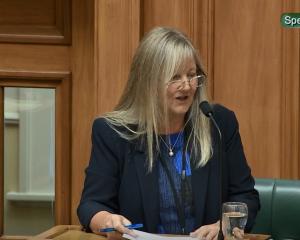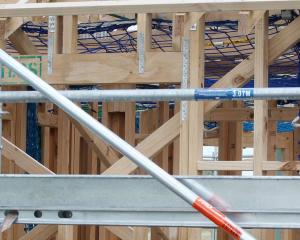Losing a chunk of her electorate in a boundary change is unlikely to put much of a dent in Jacqui Dean's majority in the safe National seat of Waitaki.
First elected to the former Otago seat in 2005, Mrs Dean is on track to win a fourth term in Parliament.
The largely rural electorate will be satisfied with the Government's support for irrigation, and its gentle approach towards improving water quality.
However, increasing environmental concerns will help the burgeoning Green Party vote.
The somewhat ragtag electorate covers a vast area, including Geraldine, in South Canterbury, and Oamaru, Wanaka, Roxburgh, Alexandra and Clyde.
Covering such a large area with its mix of rural and urban areas is a challenge for any MP.
Waitaki lost eastern Otago areas such as Palmerston and Hampden to the Dunedin North electorate in the recent boundary change.
Mrs Dean (57) has been consistently overlooked for a hoped-for promotion to Cabinet.
She told the Otago Daily Times shortly after the 2011 election she would relish the opportunity if it was offered.
Political newsletter transTasman issues yearly performance rankings of MPs. Its 2013 edition said Mrs Dean, ''one of National's better backbenchers'', had found herself ''left out'' once again for promotion.
Another disappointment was failing to convince the Government to upgrade the historic Oamaru courthouse, although Mrs Dean has promised to keep plugging away on the issue.
The building was deemed an earthquake risk in November 2011 and the Government has refused to spend the just over $1million required to bring it up to standard.
The assessment was obtained by those fighting to save the courthouse, including Mrs Dean's husband, Oamaru lawyer Bill Dean, after the Government had claimed it would cost more than $5 million.
Oamaru has been downgraded to a ''hearing court'' only, with no permanent office. The town now has a ''porta-court'' facility in Humber St, in the Oamaru Licensing Trust car park.
At the opening of the porta-court last month, Mrs Dean told the ODT she had pressed the Government to upgrade the courthouse for permanent use, and would continue to do so.
Upgrading the courthouse would have the twin benefit for Oamaru of retaining an essential service, while enhancing its stock of Victorian buildings, an important tourist attraction.
The effort to save the courthouse is typical of the struggle to retain infrastructure and services in the many towns of the Waitaki electorate.
The farming community won a victory last year when New Zealand Post agreed to exempt rural delivery from its plan to cut delivery to three days a week.
However, many towns in the Waitaki catchment are not on rural delivery, and will have a reduced service from next year.
Labour's Waitaki candidate is Dunedin nurses' union senior manager Glenda Alexander, who unsuccessfully sought the Dunedin North Labour nomination for the 2011 election. Standing for the Green Party a second time is Sue Coutts, manager at Wanaka Wastebusters.
Ms Coutts has scope to improve on the Green Party's 11.9% party vote in 2011 (2008: 7%).
Towns such as Wanaka and Geraldine have a high proportion of environmentally conscious residents concerned by the effects of dairy cows on river quality.
In both Wanaka and Lake Hawea booths, the Greens received more party votes than Labour in 2011. Overall, Labour received 21.4% of the party vote, down from 30% in 2008.
The electorate has a high proportion of older people, and concerns over health board home help have been raised at Waitaki candidate forums.
Most of the electorate is in the Southern District Health Board catchment, which, like other health boards, has rationalised home help in recent years.
Older people are receiving fewer hours' help, and are more likely to have to deal with Auckland, Wellington and even Australian-based providers. Previously, small health trusts and provincial organisations typically handled the contracts.
Many older people in small Otago and Canterbury towns do not have children living nearby, while they are faced with living in their own homes for much longer, because of restrictions on residential care.












